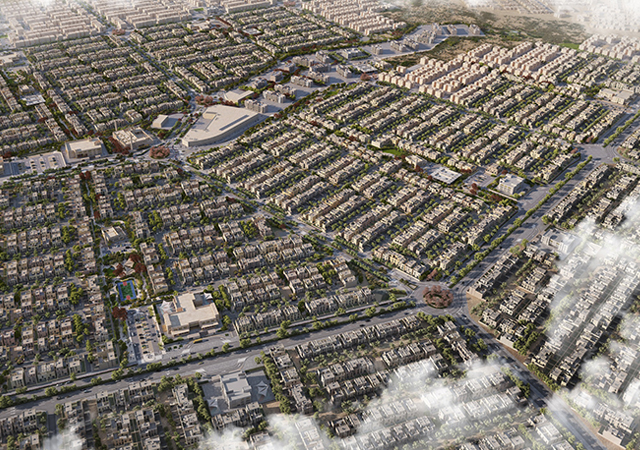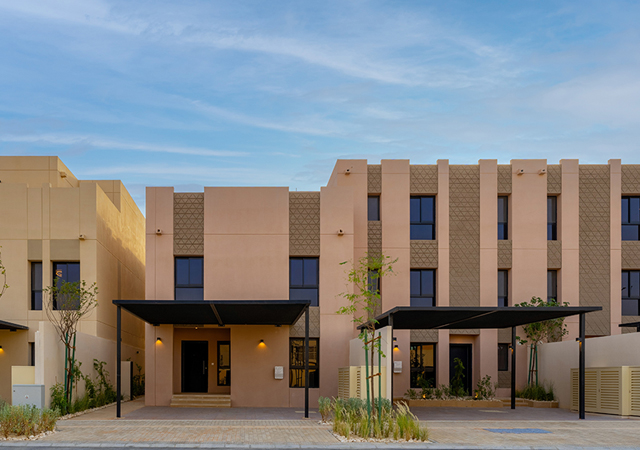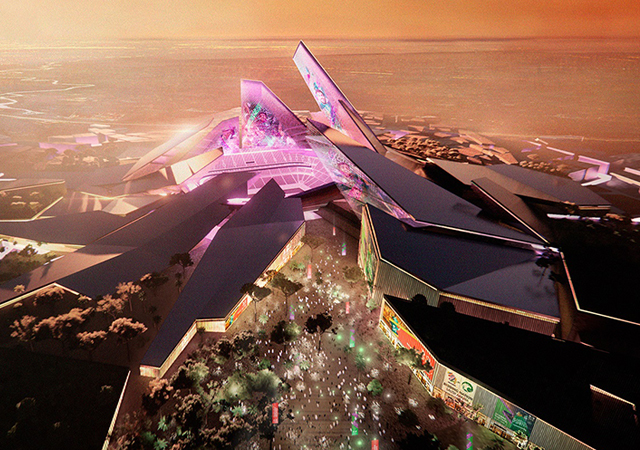
 Warefa will be built over an area of 1.4 sq km and will feature 2,300 villas, townhouses and duplexes.
Warefa will be built over an area of 1.4 sq km and will feature 2,300 villas, townhouses and duplexes.
Roshn Group, Saudi Arabia’s largest multi-asset developer, is making significant strides with its high-profile projects in the capital, including Sedra, its flagship integrated community project and the upcoming Warefa development. As part of its expanded portfolio, it is also pushing ahead with plans for a stadium that will host some of the FIFA World Cup 2034 matches.
Sedra, spanning over 20 million sq m near Riyadh’s main airport and the Riyadh Expo 2030 site, will feature 30,000 homes and more than 400 amenities across eight phases. The integrated community is situated next to the retail and commercial area of Roshn Front.
The Public Investment Fund (PIF)-backed company says it has completed infrastructure for Sedra 1A and is in the process of handing over approximately 3,000 homes to owners in this part of the development, with the majority having been handed over in 2024. Next door in Sedra is 1B, which features over 1,000 first multi-family units and apartment buildings that are being built by AlKifah Contracting,
 |
|
Sedra, spanning over 20 million sq m near Riyadh’s main airport and the Riyadh Expo 2030 site, will feature 30,000 homes. |
Further phases are under way. China Harbour Engineering Company is developing infrastructure for Sedra 2, which will include several thousand family villas being constructed by Shapoorji Pallonji.
In 2023, the Chinese contractor had signed two deals worth SAR7.7 billion ($2.05 billion) to develop the Sedra and Warefa communities. Work involves construction of 6,700 residential units and a precast concrete plant at Sedra.
Meanwhile, Sedra 3 and Sedra 4 will feature 3,400 and 2,500 units respectively, with the latter also housing the community’s first Saudi Sports for All Federation dome. Other phases are in the design stage, with construction expected to begin soon.
In terms of services at Sedra, Roshn has signed an agreement with the Riyadh Region Municipality that covers the management, operation and maintenance all municipal assets and infrastructure at Sedra’s first phase. While these services are usually provided by the municipality, the aim is to ensure that Roshn’s residents in Sedra receive high quality services, like landscaping, waste management and street cleaning, the multi-asset developer explains, adding that Riyadh Municipality will take over the provision of these services in a year’s time.
Roshn has also signed an agreement with the National Water Company to jointly plan for the development of water utility services for each of its residential projects.
 |
|
Roshn unveiled its show villas in Warefa recently. |
Warefa
Roshn’s second Riyadh-based community Warefa is situated in the east of the city, near the highway to Dammam. Spread over an area of 1.4 sq km, Warefa will feature 2,300 villas, townhouses, and duplexes. Roshn launched its sales centre and unveiled show villas in May 2024, and is pushing ahead with the construction of infrastructure, as well as the first third of homes.
Both Sedra and Warefa have achieved diamond certification under Saudi Arabia’s Mostadam sustainability system, which addresses the kingdom’s unique economic, social, and environmental conditions.
 |
|
Roshn Stadium ... to host some of the FIFA 2034 World Cup matches. |
Stadium
Among other major assets, in mid-2024 Roshn announced the development of Roshn Stadium, a key component of Saudi Arabia’s successful FIFA 2034 World Cup bid. Covering over 450,000 sq m in southwest Riyadh, the stadium will accommodate 46,000 spectators and include secondary facilities such as a training academy, hotels, and retail outlets.
Roshn issued a prequalification notice to select firms in the second half of the year. It is seeking global developers specialised in building large-scale stadiums and to partner them with local developers, to both mitigate risk and to promote knowledge transfer in building world-class sporting facilities.
Other initiatives
Roshn is also working with the Riyadh Infrastructure Projects Center (RIPC) to enhance infrastructure planning and delivery in Riyadh and its surrounding areas. The partnership, formalised during the Saudi Infrastructure Expo last September, focuses on sustainability and the use of advanced technologies to drive high-quality, eco-friendly developments.
Both parties will exchange expertise and best practices in planning projects and the use of technology to deliver high-quality infrastructure developments for the capital.

















.jpg)













 (1).jpg)


















































